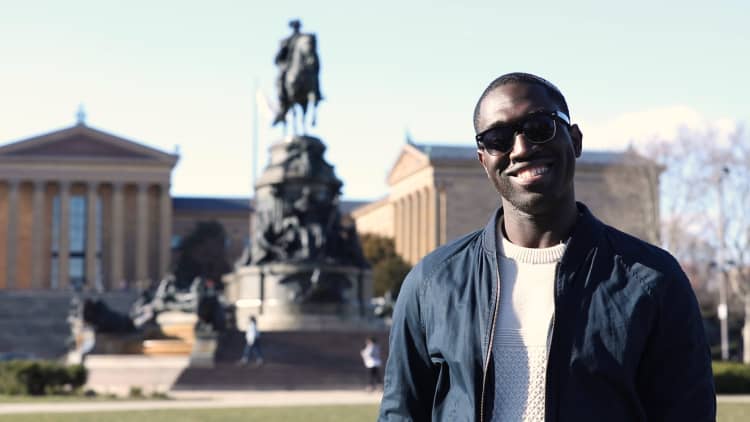CNBC Make It is posting a new financial task to tackle each day for a month. These are all meant to be simple, time-sensitive activities to take your mind off of the news for a moment and, hopefully, put you on sturdier financial footing. This is day 22 of 30.
If you've been following along, you already know why it's important to focus on building up your emergency fund if you're worried about the future. Now it's time to figure out a way to boost your account even more. Today, consider gamifying your savings to stash away more.
Gamification, or adding elements from game playing, like challenges, competition and scores, can be helpful because it taps into your emotional responses to money. One reason people have a hard time saving money is because instant gratification is valued over long-term gratification, behavioral economists say. Making savings into a game feeds the need for instant gratification (when you hit a savings goal, you level up) while keeping you on track for future success too.
How do you start gamifying your saving? One idea, shared by Jandra Sutton for Business Insider, is to create a savings "ladder" to reach your goals. Once you've decided on an amount of money you'd like to have saved — say, three months of housing, food and transportation costs — break it into smaller goals, or rungs on the ladder. Give yourself a reward each time you reach a new rung.
"The action of earning a reward — something tangible (and sometimes frivolous) — keeps us engaged and excited about saving money even when our daily lifestyle might seem hyper-frugal," Sutton writes.
You can use this strategy for emergency fund savings as well as other types of goals, like a house down payment or maxing out your retirement account contributions. Keep track in a journal, a financial app like Qapital, an Excel spreadsheet or something more visible, like a white board in your home.
You can structure your game however you'd like. You might try a "no spend" week or month or some other type of a 30-day challenge. You can compete against yourself, as a team with your spouse and kids or against a friend.
Whatever you decide on, keep it simple so that you actually follow through. Even if you don't "complete" the game, any extra savings is a win.
Don't miss the past five days:
- Day 17: Are you missing money? Don't forget to get the refunds you're entitled to
- Day 18: Find a better bank account
- Day 19: Take one thing off of your to-do list for the coming week
- Day 20: Join a money community for financial support
- Day 21: Prepare for a recession by prioritizing your emergency fund
Check out: The best credit cards of 2020 could earn you over $1,000 in 5 years



